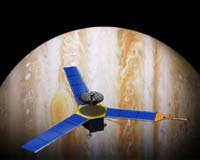| . |  |
. |
Los Angeles CA (SPX) Sep 27, 2010 Animal Defenders International (ADI), the leading animal welfare organization that works globally for the protection of animals, launched a major U.S. educational and legislative campaign to secure public and government support to prevent NASA from proceeding with irradiating squirrel monkeys to study adverse effects of space radiation. The centerpiece of the legislative campaign is a compelling 4-minute video entitled 'Space Experiments on Monkeys - One Giant Leap Backwards' which recaps the prior use of animals in space research, cites reasons NASA's irradiation experiments are flawed and premature, and presents viable alternatives to primate testing. The DVD also includes an exclusive ten-minute interview with April Evans, former NASA engineer who explains she resigned her dream job with one of the world's top space agencies because of NASA's radiation tests. Both videos are also being launched online as part of a major awareness drive. Every member of Congress will receive a copy of the DVD as part of a drive to ensure the monkey experiments are stopped. Tim Phillips, Animal Defenders International vice president said, "These tests are cruel, unnecessary, premature and a waste of taxpayers' money. They are expected to cost $1.75 million of taxpayer money and they are scientifically unsupported. Our video shows that these monkey experiments have been criticized from every side, scientists, animal protectionists, astronauts, former NASA employees, and even the European Space Agency. We are not opposed to space exploration, but Congress needs to take a stand and stop what can only be described as cruel folly." The video reveals the horrific nature of the monkey experiments which will include: Burns, weakness, hair loss, failing organs and nausea. It also points out that there are already a significant number of sources for data on the impacts of high doses of radiation on humans including the victims of atomic bombs, X-rays and radiotherapy, the nuclear power industry, and astronauts who have spent time in space. Cosmonaut Valentin Lebedev, who set a world record for time in space, describes the tests as "inadmissible for humane reasons" citing the wealth of data available from astronauts. Jim Bates, NASA retired, formerly Co-Chairman of the JSC Space Radiation Environment Group (SREG) 1968-1970, has noted the decades of similar experiments on animals and said: "We have probably sacrificed enough monkeys for these data, something else is needed." The European Space Agency's (ESA) Director Jean-Jacques Dordain stated that he and ESA categorically opposed and "declines any interest in monkey research and does not consider any need or use for such results." The statement confirms the unnecessary character of NASA's tests and reveals the uneasiness of a large segment of the scientific community involved in space research about the use of monkeys in experiments. Tim Phillips said: "These experiments are wrong every way that you look at them. There is a wealth of data available and alternatives which include cell and tissue culture study, the simulated human torso in space, and the use of scanning techniques to examine neurological function in patients undergoing partial brain radiotherapy. Even if you ignore all of this, NASA does not yet have the shielding technology to protect the astronauts on such a mission, and this would determine any type radiation exposure, so these tests are shamefully premature." Aerospace engineer April Evans resigned her position earlier this year as a space architect on the International Space Station (ISS) program because of NASA's decision to conduct primate irradiation testing. Evans believes this experiment is a major step backward for NASA's animal testing record. "After much deliberation, I resigned from NASA because I could not support the scientific justification for this monkey radiobiology experiment," Evans wrote in a letter to Samuel Aronson, director of the Brookhaven National Laboratory, which was contracted by NASA to conduct the tests on squirrel monkeys. "NASA needs to focus on developing space radiation shielding because both astronauts and hardware are at risk from the space radiation environment, an issue that will have to be addressed by all space agencies. Space vehicle radiation shielding is necessary technology for a sustainable long-term human space exploration program and scientists and engineers should be given the chance and time to advance shielding technology."
Share This Article With Planet Earth
Related Links Animal Defenders International (ADI) Space Tourism, Space Transport and Space Exploration News
 Space probe gets 'suit' of armor
Space probe gets 'suit' of armorWashington (UPI) Jul 13, 2010 A spacecraft bound for Jupiter will get a suit of armor to protect it from the fiercest radiation any space probe has ever encountered, NASA officials say. The unmanned Juno space probe will face a treacherous environment with more radiation than around any other planet and will need an armored shield around its sensitive electronics, NASA said in a release Monday. "Juno is basic ... read more |
|
| The content herein, unless otherwise known to be public domain, are Copyright 1995-2010 - SpaceDaily. AFP and UPI Wire Stories are copyright Agence France-Presse and United Press International. ESA Portal Reports are copyright European Space Agency. All NASA sourced material is public domain. Additional copyrights may apply in whole or part to other bona fide parties. Advertising does not imply endorsement,agreement or approval of any opinions, statements or information provided by SpaceDaily on any Web page published or hosted by SpaceDaily. Privacy Statement |